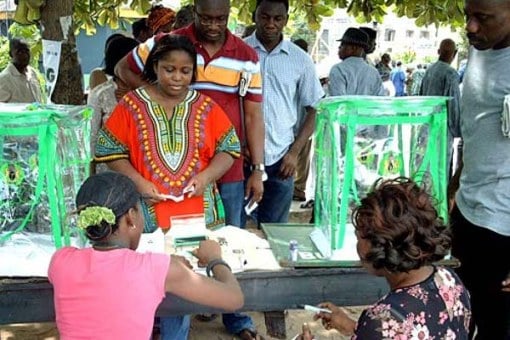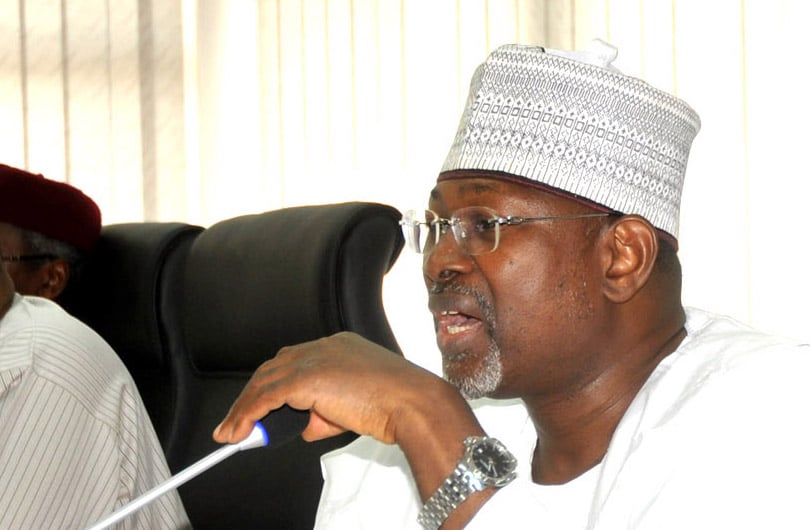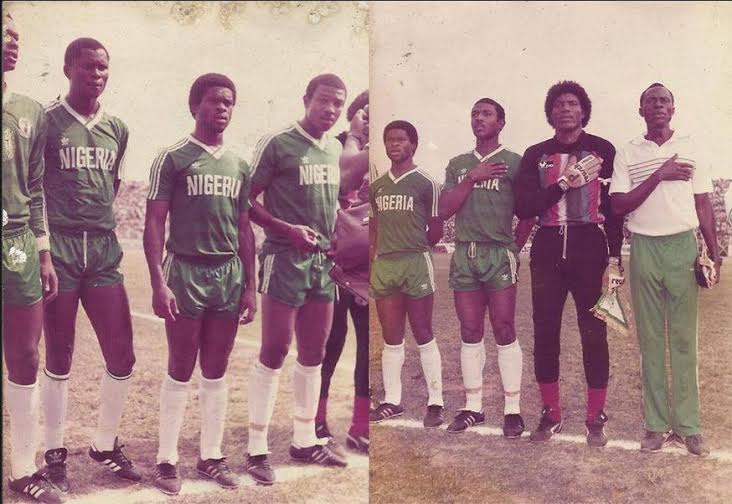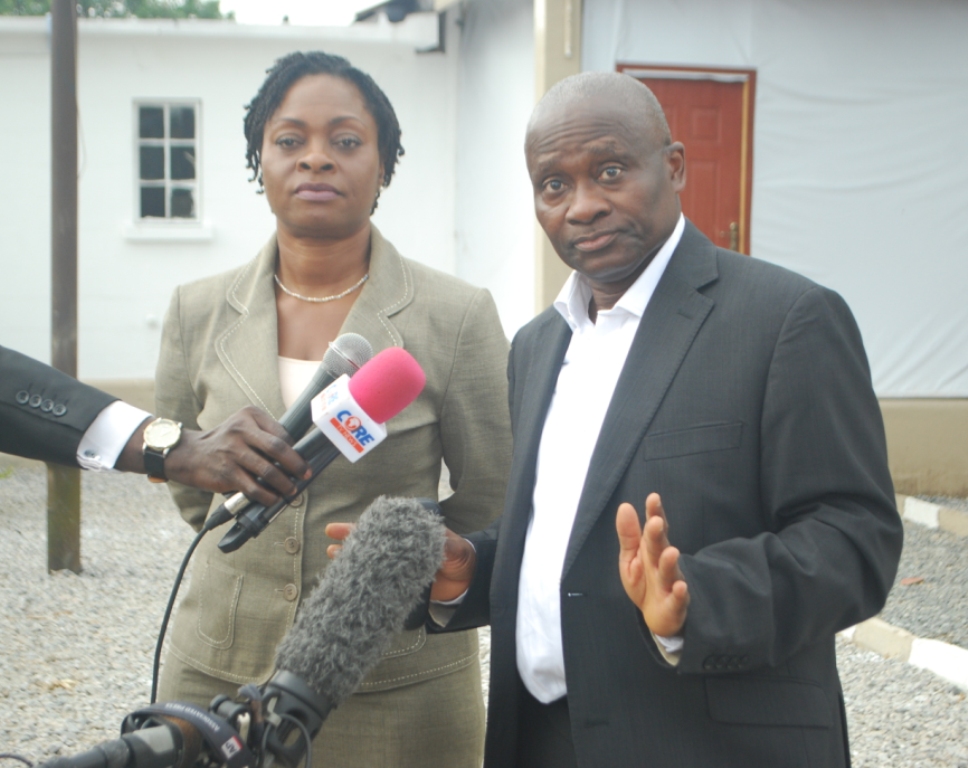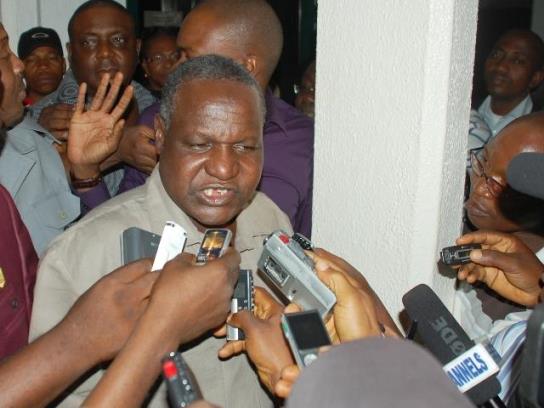The tenure of office of the president, vice president, governors and deputy governors of all the states of Nigeria except Anambra, Bayelsa, Kogi, Edo, Ondo, Ekiti and Osun States will expire on May 28, 2015. The membership of the national and state assemblies would also expire on the same date.
In compliance with Section 30 (1) of the Electoral Act 2010 (as amended), INEC has issued a schedule of activities for the 2015 general elections.
Important dates on the schedule include:
Commencement of campaign by political parties – November 16, 2014
Advertisement
Conduct of party primaries – October 2 – December 11, 2014
Presidential and national assembly elections – February 14, 2015
Governorship and state house of assembly Elections – February 28, 2015
Advertisement
Security constitutes a challenge ahead of the 2015 general elections; INEC-conducted elections held in 2014 in several states have indicated that the commission, as well as the security agencies, are well aware of this challenge.
In February 2015, the challenges would be stiffer. Unlike INEC-conducted elections held in 2014, which involved just one state at a time, in February 2015, presidential and national assembly elections would be held simultaneously in all 36 states and the Federal Capital Territory. INEC and the Nigerian Security agencies have their work cut out, and it is the prayer of every well-meaning Nigerian that the elections are conducted in equivalent or better standards than those of Ekiti and Osun 2014.
While an inference of politics as a causative factor for insecurity in Nigeria can be debated and contested ad infinitum, it is my opinion that the state of security in Nigeria is strongly influenced by local and national socio-political factors.
Terrorism, perpetuated by Boko Haram, a militant Islamist movement based in the north-east, Nigeria remains Nigeria’s biggest security threat today. In the first half of 2014, Boko Haram killed at least 2000 civilians with more than 650,000 displaced from their homes (Source: Nigeria’s Troubled North: Interrogating the Drivers of Public Support for Boko Haram. International Centre For Counter-Terrorism – The Hague).
Advertisement
Boko Haram ravages the north-east today; barely seven years ago, terrorism and militant insurgency ravaged the Niger-Delta region; nine years earlier, the southwest was torn in civil and political strife. In each period, an intense struggle for power amongst Nigeria’s elite had implications for an increase in violence, terror and other forms of insecurity. This continues to be the case.
In Nigeria today, the systems of governance lack long-term strategies and plans for dealing with national challenges. Very often, policy decisions are made with election cycles in mind rather than the long-term sustainable interest of the nation.
To address insecurity, terrorism, political violence, corruption and other vices, national policies and constitutional provisions should focus on the future in mind rather than the next elections.
Urgent solutions are required to reduce the negative effects from power struggle in Nigeria; this would involve managing ethnic and religious diversities through constitutional provisions for achieving regional equilibrium in government through office distribution arrangements
Advertisement
This can be achieved through constitutional zoning, office distribution, rotation of office and power-shift.
A zone, in the context of this article, can be described as an aggregate of states and ethnic groups into a number of smaller regional blocks; in the case of states, the regional blocks are carved from smaller sub-units within the state.
Advertisement
While zoning is being practised in several forms today, there is no constitutional backing for it; this has had grave consequences for security in the country.
Let us review the most recent case.
Advertisement
Zoning of electoral offices 1999-2007
In 1998, following the death of Nigerian military head of state, General Sani Abacha, and the subsequent death of M.K.O. Abiola, the winner of the annulled 1993 presidential election, the succeeding military rulers drew up a prompt timetable to return Nigeria to civilian rule.
Advertisement
The biggest issue at the time was the zoning of the presidency to the southwest, in compensation for the annulled presidential mandate of M.K.O Abiola, a prominent son of the region. Subsequently, all the major political parties zoned and presented presidential candidates from the southwest. Olusegun Obasanjo, the People’s Democratic Party (PDP) candidate, won the presidential election and was sworn into office in May 1999.
In 2003, after one term in office, President Olusegun Obasanjo contested for a second term as allowed by the constitution of the Federal Republic of Nigeria. In the 2003 election, the Alliance for Democracy (AD), which was a major opposition party with its base in the southwest endorsed and supported the re-election of the PDP candidate, President Olusegun Obasanjo. The AD did not present a presidential candidate, a strategy in support of the PDP Candidate who is from the southwest.
The examples above are made to establish the importance that Nigerians attach to the zone of a presidential candidate, especially as it relates to a desire for rotational leadership. This desire surpasses a demand for merit, economic performance or anything else, but strictly on the need to see leaders from their zone at the head of the federal government and states, as the case may be.
This desire is so strong that during private discussions with Nigerians, a keen observer would identify individuals unconsciously placing the demand for a president or governor from their zone above their personal best interest. In a clear case of dissonance, many people have indicated a preference in having these positions occupied by someone from their zone, which inadvertently includes an enemy or an incompetent from their zone over a close associate, trusted partner or competent alternative from a different zone.
This also applies to local government chairmanship, zonal associations, social clubs, country clubs, sport associations, and across all associations and groups. Nigerians love “Zoning”; we love “our turn”.
In Rivers, my state, the zone of the next governor is the number one issue in the upcoming 2015 elections. So it is in many other states.
Whether “our turn” benefits the people or not is a story for another day. That is what it is, and that is who we are; it is therefore pertinent that we address who we are by identifying unique solutions to our unique national issues.
The Post-Yar’Adua challenge
In 2007, after the eight-year presidency of Olusegun Obasanjo, a southerner, it didn’t need reminding that the presidency had to move north. Disregarding any gentleman’s agreement, party minutes or secret oaths, the entire country knew and accepted that “our turn” was headed for the north. Just like in 1999 when it was unanimously agreed that power should move to the south, specifically the southwest
This was so clearly and unanimously accepted that all presidential candidates of the major parties in the 2007 general elections were from the north. The AD, which had by then transformed to the Action Congress of Nigeria (ACN), presented sitting Vice President Atiku Abubakar as its presidential candidate; the All Nigerian People’s Party (ANPP) presented General Muhammadu Buhari as its candidate; and the PDP Governor Umaru Musa Yar’Adua as its candidate.
Subsequently, Umaru Yar’Adua won the 2007 elections and was sworn in as president in 2007. If agreements exist for the rotation of the presidency, this was completely fulfilled.
Consequently, the death of President Umaru Yar’Adua presented a conundrum that Nigeria is still struggling with. This problem was made worse because there was no clear contract or agreement that stipulated a zonal succession plan with constitutional backing. Stakeholders made decisions on the election of leaders by applying the myopic view of looking at the next election, rather than making plans for a sustainable future.
The death of President Yar’Adua after three years in office triggered a force majeure, which threw up grave challenges for Nigeria, especially because zoning arrangements were not covered in legal and constitutional statutes, zoning did not look beyond an election to make provisions for zonal succession in the case of death.
I do not see any Nigerian Vice President giving up his right to succeed a demised president under the current constitution. Atiku Abubakar would not have resigned for a southwestern candidate to continue as president if President Olusegun Obasanjo had died after his first year in office, No deputy governor would do that; VP Nemadi Sambo would not do that, neither would I nor you.
On the issue of zoning, Nigerian stakeholders have, unfortunately, been playing the ostrich. While we cannot quantify precisely how much the contentious issue of “our turn” has played in the exponential increase in the state of insecurity from the activities of Boko Haram, we are all witnesses to the thousands of lives lost following the 2011 presidential elections.
Interestingly, logical indicators show that the political tensions and violence of the 2011 elections in the north are a direct repercussion of contention related to perceptions on non-constitutional “zoning of the presidency”.
After President Goodluck Jonathan won the 2011 presidential elections, mobs, amongst whom were several youths who ‘cut their teeth’ in violence and terrorism, ran riot, indiscriminately killing children, women and unarmed civilians, not one of those that was killed was a known member of the PDP. Not one government official was killed. Obviously, these riots were not party affiliated, and a lot of PDP supporting thugs where part of the mob running riot and killing Nigerian citizens not from the northern zone.
Curiously, after these riots, these mobs all walked down to polling centres two weeks later and voted for PDP governors in all the states where they rioted and killed innocent civilians after the PDP candidate was declared winner of the presidential election. The states that voted PDP governors in the 2011 elections, two weeks after the presidential elections and subsequent riots included: Katsina State; the state of General Muhammadu Buhari, Kaduna State; Kano; Sokoto; Niger; Bauchi; Jigawa and so on.
Addressing ethnic and religious diversities through constitutional provisions
The drivers of the problems mentioned above in this article are faulty foundations in addressing the large ethnic and religious diversity of Nigeria, which has compounded with each passing year and with every new, related challenge.
The issue of zoning is one that Nigerians are well aware of, but have chosen to ignore. We have not heard the end of it, as we still grapple with Boko Haram, an ever-present Niger Delta militancy, inter-communal and religious clashes, etc. Indeed, we may have survived the Yaradua succession issues as a nation, but we surely would not survive a repeat of the same problem.
There are several scenarios that could bring back this same issue to haunt Nigeria while we play the ostrich. Let’s look at a few wild but plausible scenarios:
1] President Goodluck Jonathan wins presidential election in 2015, is sworn into office, and dies from natural causes in 2016.
2] General Buhari wins the 2015 presidential election, is sworn into office in May 2015, and dies of natural causes in 2016
3] General Buhari wins presidential election in 2019, is sworn into office at the age of 76, and dies of natural causes in 2022
4] A northern PDP president wins the presidential election in 2019, is sworn into office, and dies in office three years into his tenure (deja vu?)
5] The death of any president after a few years in office
Sincerely, Nigeria might not survive any of the scenarios above, not because any is unusual, but because of the contradictions in our desires from that of our constituted rights and processes, and the suspicion that has become cancerous in our multi-ethnic and multi-religious society.
Fortunately, Nigerian politicians know this, and the practice of zoning, rotation of political offices and power-shift has deep-seated cultural basis in Nigeria. While this has always been the prerogative of internal party organs, it has become necessary that Nigeria address the issue as one that requires urgent constitutional backing.
The goal of constitutional zoning in the Nigerian context would be to validate a pattern whereby the ethnic/regional origin of top political office holders alternate from one election or set of election to another.
In the least, we need a constitution that lays out clear terms for zoning, political office rotation, power shift and zonal succession. We can start by working towards planning for a constitutional amendment to come into effect in 2019 (2015 is already too close).
While specific details would have to be worked out by the legislators, constitutional zoning must have multiple vice presidential positions, with an administrative vice president from the opposite zone of the president, and a ceremonial heir vice president from the same zone as the president, who would have the constitutional right of succession in the case of the demise of a sitting president.

